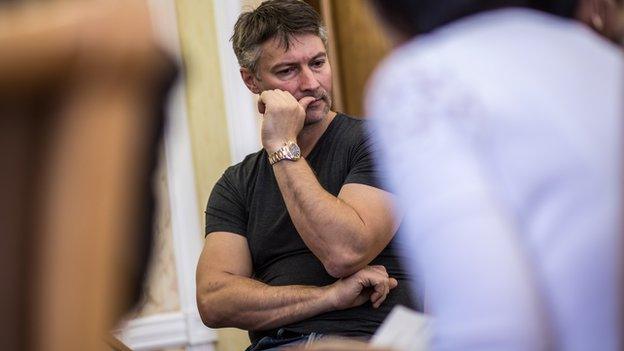Activists storm Yekaterinburg Russia park in protest against new church
- Published
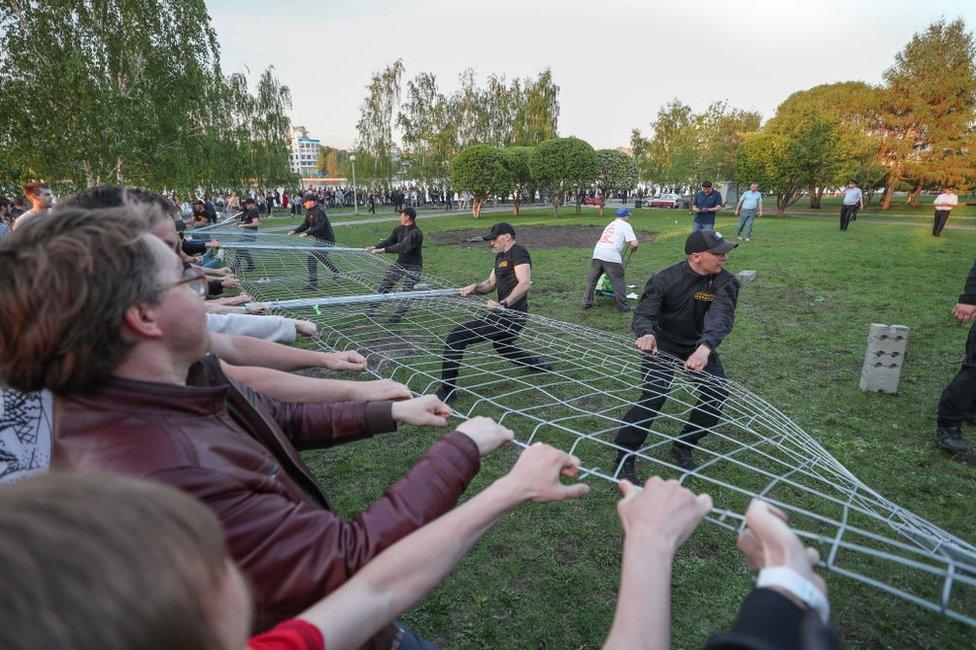
Protesters toppled the fence in Yekaterinburg, while chanting "We want a square"
About 2,000 people have protested against a church being built on a park square in Yekaterinburg in Russia.
Twenty-six people were arrested during Tuesday's clashes and there were further protests on Wednesday.
Activists say building St Catherine's Cathedral on the square will destroy one of the city's few green spaces.
The Russian Orthodox Church says it needs new churches to replace the many buildings destroyed under Soviet anti-religion laws.
This particular church will be a replica of one such cathedral that was demolished in 1930.
It is due to be completed in 2023 in time for the 300th anniversary of the founding of Yekaterinburg, Russia's fourth-largest city.
Kremlin spokesman Dmitry Peskov on Wednesday criticised the protesters for "unauthorised gatherings" as well as for pulling down fencing around the construction site.
What happened?
Following a call on social media, thousands of residents got together "for a stroll" on the Iset river embankment in the centre of the city on Monday.
The protesters gathered near a temporary fence that had been erected around a section of the park, marking off the space where the church is supposed to be built.
They formed a human chain around the fence and, eventually, managed to topple it, while chanting: "We want a square."
As the crowds made their way into the park, they were confronted by security guards hired by Russian Copper Company (RCC) - which is sponsoring the construction of the church - as well as some Mixed Martial Arts (MMA) fighters apparently linked to the company's Academy of Martial Arts.
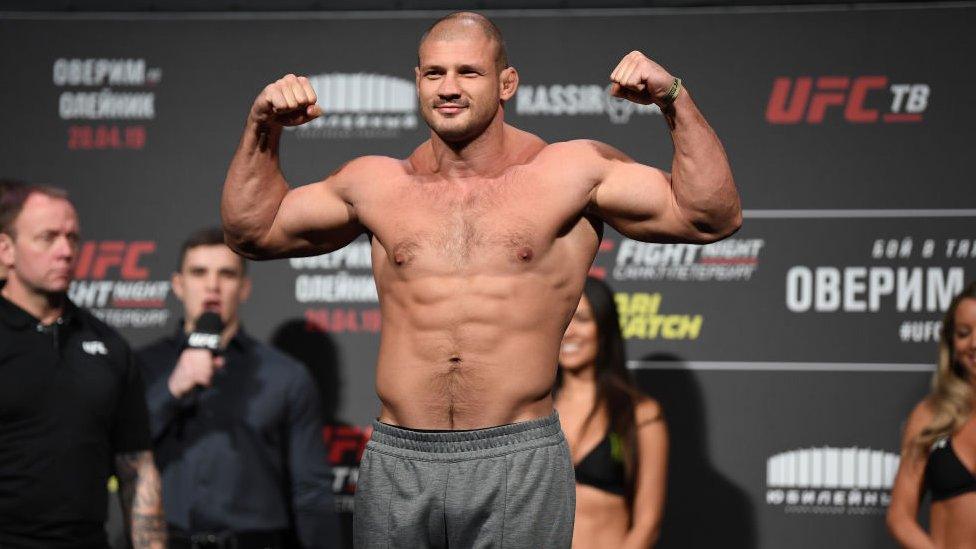
MMA fighter Ivan Shtyrkov (file photo) was among those defending the construction of the church
Among the pro-church fighters was Ivan Shtyrkov, also known as the Ural Hulk - a professional MMA fighter and head of the RCC's academy.
Protests continued through the night, and throughout the following day.
The regional public security ministry says 26 people were arrested and reports say three were taken to hospital, including one with a broken rib.
Protests against the church continued on Wednesday, as activists tied themselves to trees and a new fence was erected around the site.

How important is this protest?
By Sarah Rainsford, BBC News, Moscow
Three days of protests in Russia involving hundreds of people is rare enough to be significant.
The laws have grown much tighter under President Vladimir Putin, with unauthorised gatherings quickly broken up by police. This time they have been backed up by burly MMA fighters. That move alone has angered the crowds and commentators.
But the focus of this dispute adds to its interest.
The Russian Orthodox Church has grown increasingly powerful as part of the search for a post-Soviet "national idea" and identity.
Some 10,000 new churches have been built in the past decade, supposedly to meet growing public demand. The Yekaterinburg protesters insist they're not anti-religious, as they have been labelled: they are against this cathedral, in this spot, fighting for their city environment.
There has been a notable surge in local activism with campaigns on issues from road-building to waste disposal - as overtly political protests have faded.
They also seem sparked by a desire to stand up to powerful interests: the Church and big business.
So Moscow, ever wary, will be keeping an eye on events.
Kremlin spokesman Dmitry Peskov on Wednesday praised local authorities for brokering talks over the dispute. He also criticised the protesters for "actions that are against the law".

Why are people against the church?
The church has been a source of controversy since plans to build it were first announced in 2010.
On its website the local activist group in Yekaterinburg says: "To build the cathedral they want to destroy the park, which is a favourite place for residents to relax."
Others have said that the city is in need of more, not fewer, parks.
"Nobody is against a church, but everyone is against building one here," one protester told Radio Free Europe. "There are lots of churches here... But not much green space is left in the city."
Protesters also chanted "we want to see the mayor" - referring to the city's former Mayor Yevgeny Roizman, one of the few politicians in office who had been openly critical of President Vladimir Putin.
Mr Roizman resigned last year after it was announced that direct mayoral elections were being scrapped in Yekaterinburg, and attacked the decision as anti-democratic.
What has the Church said?
Vakhtang Kipshidze, a spokesman for the Russian Orthodox Church, has accused protesters of being "anti-religious".
"There are a multitude of lawful ways of expressing disagreement... but to create conflict on religious grounds is especially sad on the soil of Yekaterinburg, where not so long ago by historical standards mass religious persecution took place and Tsar Nicholas II and his young children were murdered," he told Interfax.
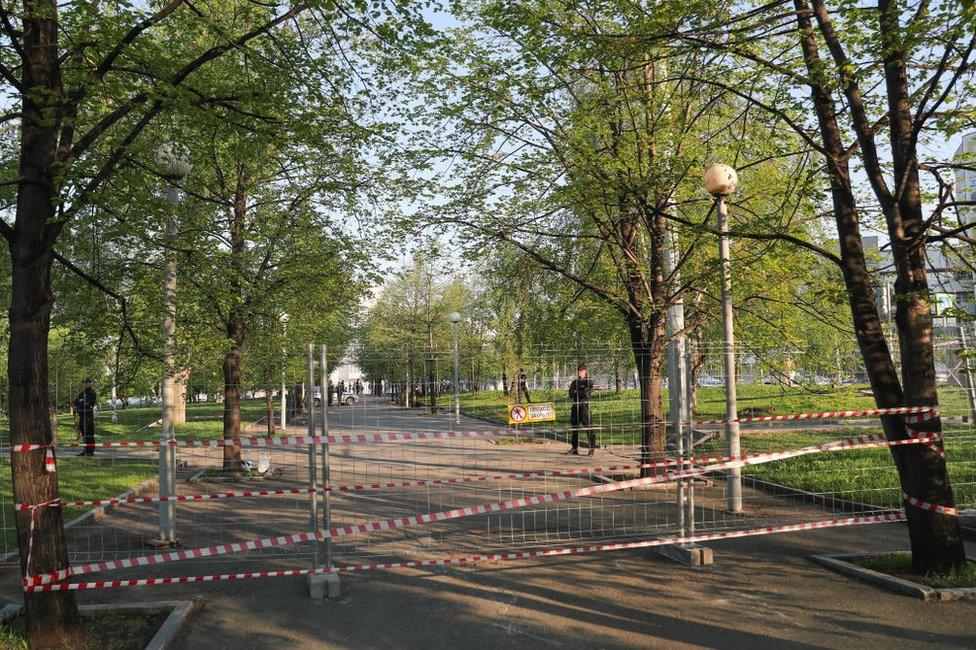
The fence marks off the area where the church is being constructed
He added that the protest "could only have been organised by people driven by anti-religious motives".
Representatives from the Church took part in emergency closed-door meetings with activists, convened by Yevgeny Kuivashev, the governor of Sverdlovsk Oblast.
Mr Kipshidze said that while the Church was in favour of constructive dialogue with the protesters, these discussions should not include people who "simply cannot tolerate anything connected to religion".
- Published3 May 2019
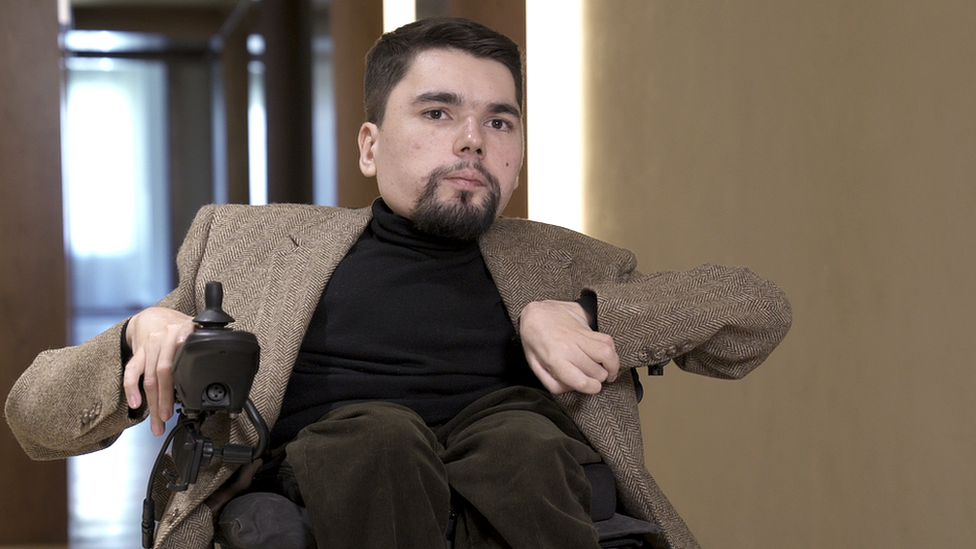
- Published7 May 2019
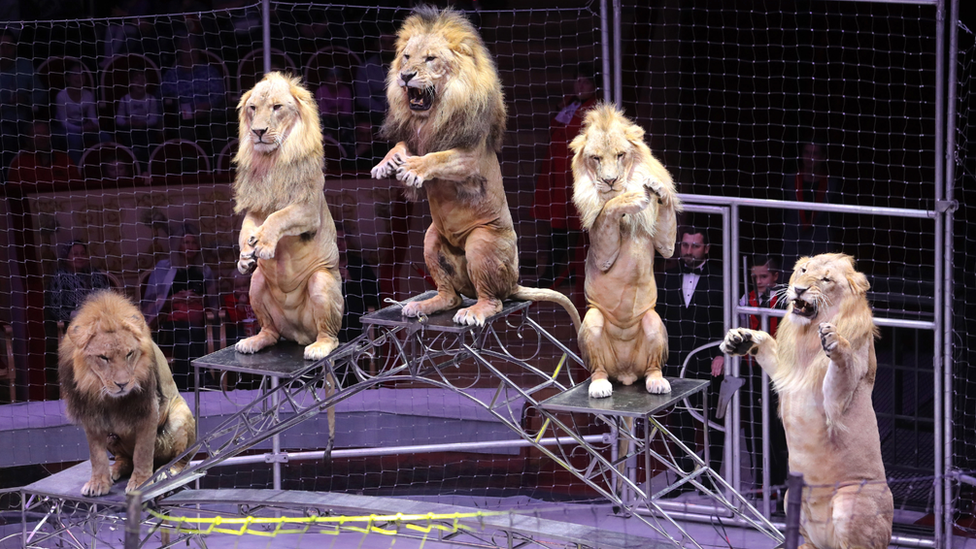
- Published28 October 2013
